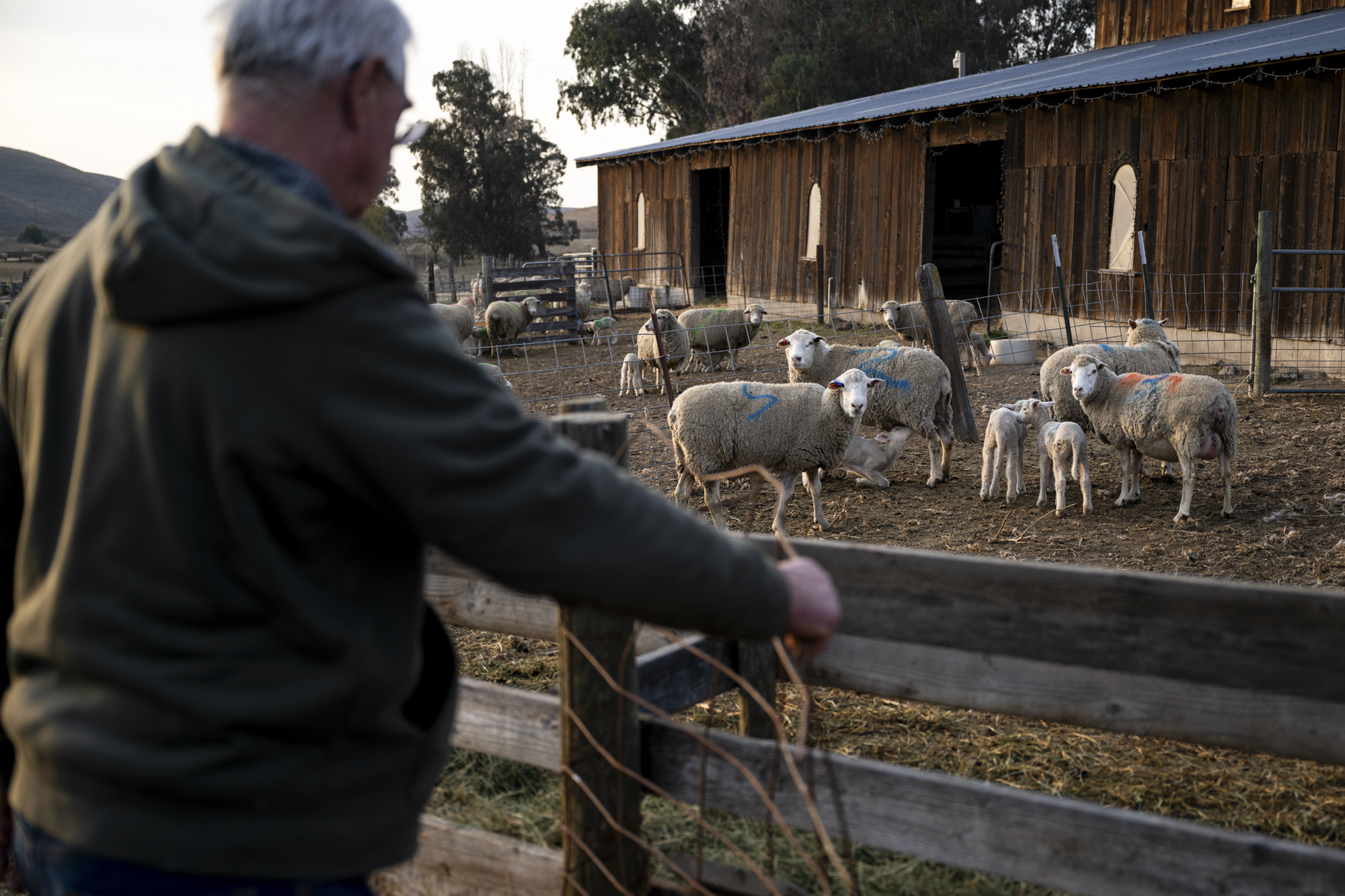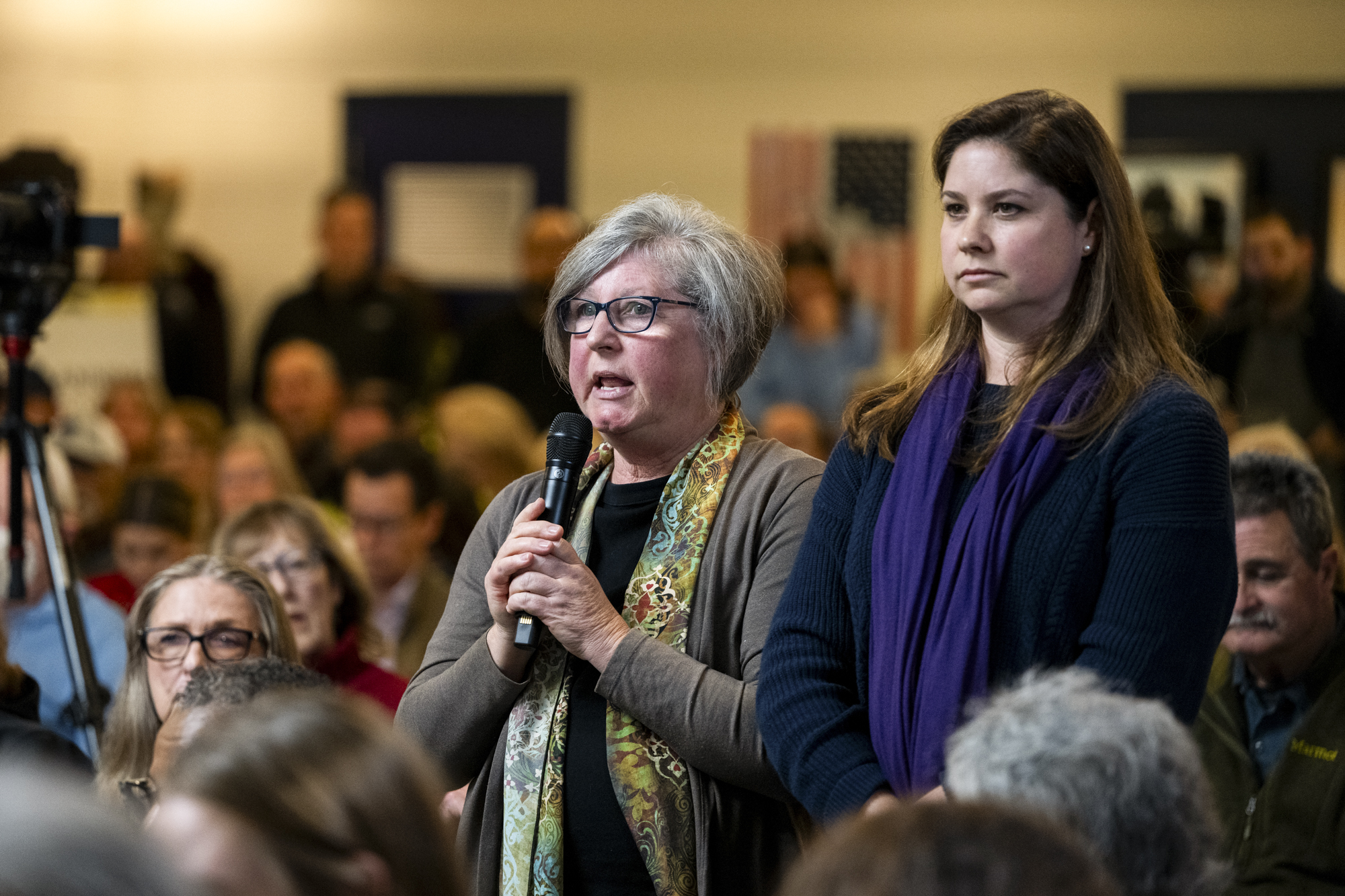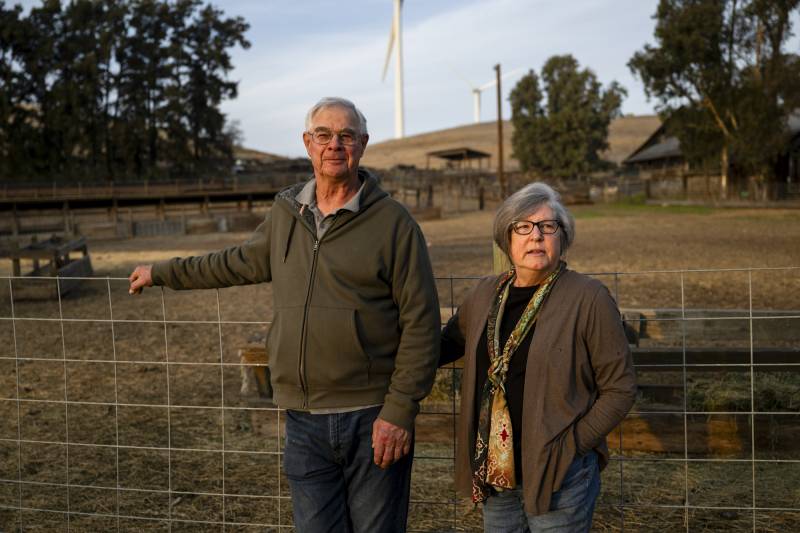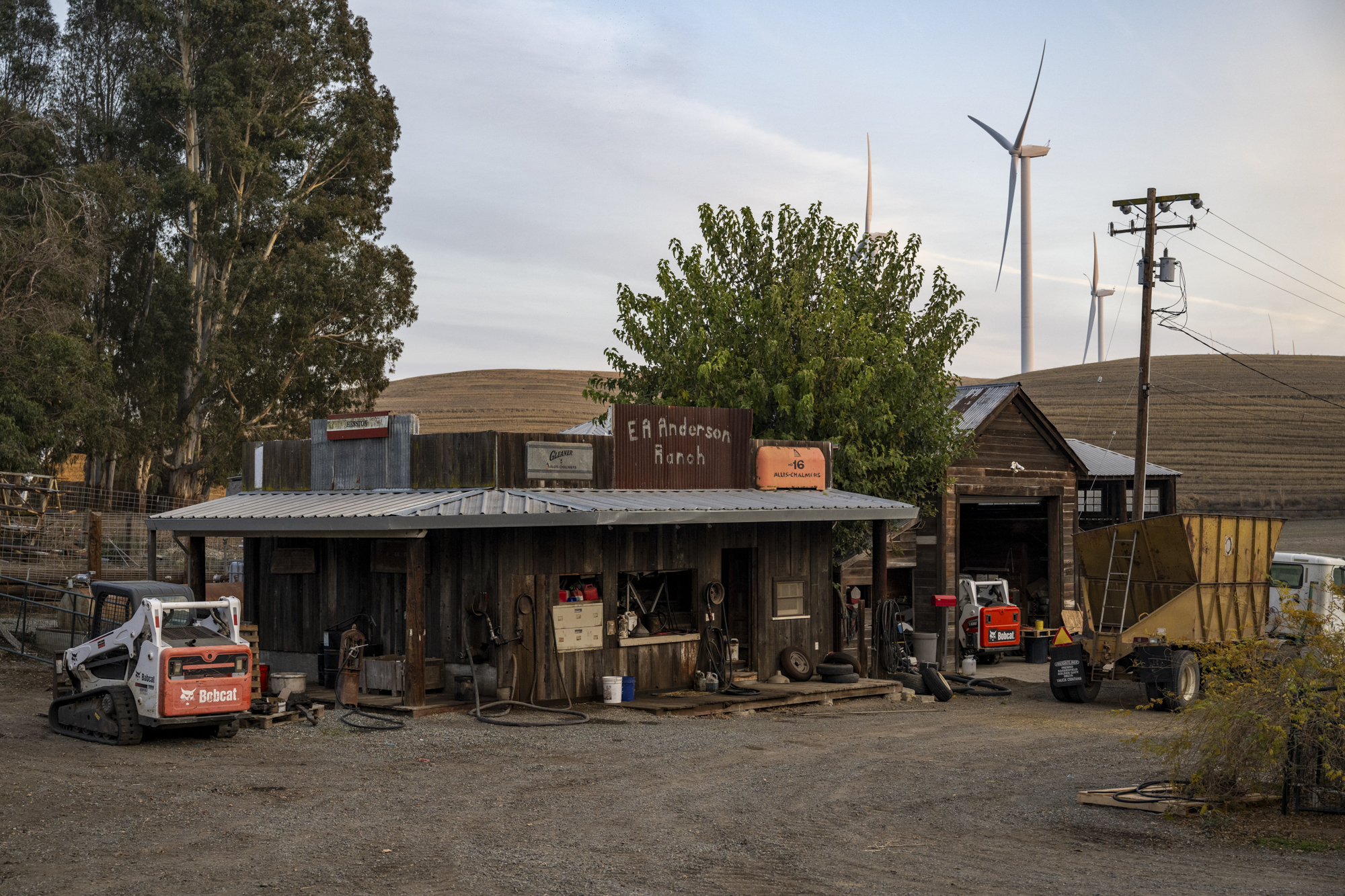Ian and Margaret Anderson’s lives revolve around their over 100-year-old farm, E.A. Anderson and Son Ranch., in the Montezuma Hills of Solano County. They raise thousands of sheep and grow grains like wheat, safflower and canola. Recently, they started growing malting barley, which can be used to make beer.
“Grains are the most productive crops here,” said Ian Anderson. “We’ve had really good crops over the last few years.”
The Andersons own about 1,500 acres, but have always farmed on thousands of acres more that they rent from relatives, neighbors and utility agencies. Each year, a third of the land is reserved for sheep grazing, another third for crops and the final third lays fallow to let the soil rest.

But a few years ago, their world started to turn upside down. In 2017, Flannery Associates, a company backed by Silicon Valley billionaires, started buying thousands of acres of farmland around them to build a new city from scratch. The Andersons weren’t interested in selling their land when the company first approached them in 2019.
“It’s not just about the money,” said Ian. “It’s about who we are and what we do. We have value in growing our crops and raising our livestock. That is more meaningful than cashing in on money and then trying to start a new life somewhere else.”
Now, the Andersons and other landowners are embroiled in a bitter lawsuit with the company. Even if the case gets dismissed, the Andersons are unsure whether they can continue operating their farm as the hills change around them.
A new California dream
California Forever, the parent company of Flannery Associates, wants to “bring back the California Dream” — a dream that includes offices close to homes, with restaurants and small businesses lining the streets in between. The details of how that city will be built are still hazy.
Jan Sramek, the company’s CEO, envisions a sustainable city with plenty of bike paths and public transportation to rival Berlin or Paris. They aim to solve some of the state’s biggest problems: housing affordability, long commutes and clean energy.

“People have been trying to solve these issues for 30 years,” said Sramek. “Every time someone says ‘I don’t like your project for these reasons’ we say, okay, what’s your proposal for fixing these issues? Because it’s really easy to be a critic.”
Sramek and his team have been coming face to face with some of their critics, as they have spent the past month campaigning across Solano County to get more residents on board with the planned community. Before it can be built, voters will have to approve the project when it appears on their November ballot.



